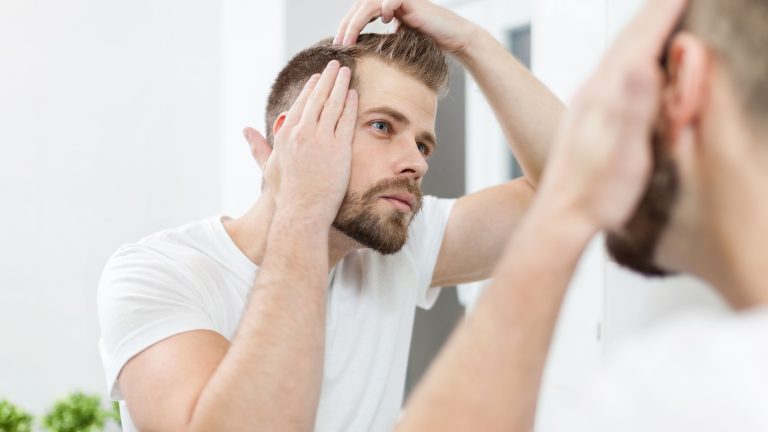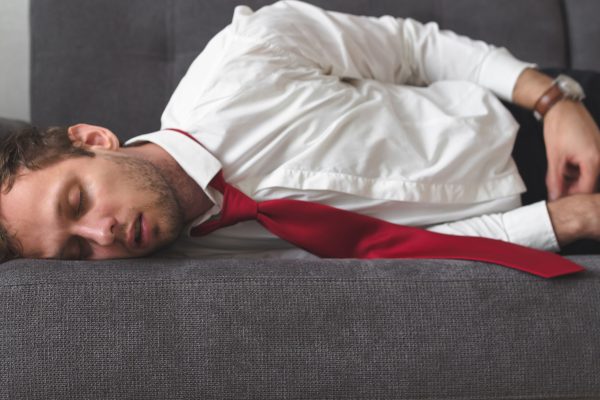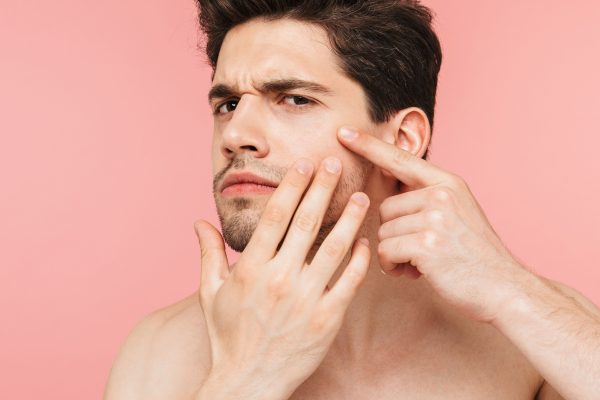- Separating Fact from Fiction: The Truth About Masturbation and Hair Loss
- The Verdict: Masturbation’s Impact on Hair
- Separating Fact from Fiction: Debunking Myths About Masturbation and Hair Loss
- Seeking Accurate Information
- Conclusion: The Final Word on Masturbation and Hair Loss
In summary, let’s put an end to the unfounded notion that masturbation contributes to hair loss. Scientific evidence firmly establishes that there is no causal relationship between the two. Masturbation is an ordinary part of human sexuality and has no detrimental impact on your hair. As we shed light on these myths, we empower ourselves with the truth, enabling us to make informed decisions about our health and well-being.
Demystifying the Link Between Masturbation and Hair Loss: FAQs
- Question: Is There Any Truth to the Myth That Masturbation Causes Hair Loss?
- Question: Why Do People Believe That Masturbation Can Impact Hair Growth?
- Question: Could Frequent Ejaculation Deplete the Body’s Protein Reserves?
- Question: Does Masturbation Influence Testosterone Levels and DHT Production?
- Question: Can Masturbation Lead to Physical Ailments or Hair Growth in Unusual Places?
- Question: What Are the Benefits of Masturbation Beyond Hair Health?
- Question: Are There Any Risks Associated With Masturbation?
- Question: Does Masturbation Contribute to Hair Loss for Both Men and Women?
- Question: What Are the Real Causes of Hair Loss?
- Question: How Can I Separate Fact From Fiction About Masturbation and Hair Loss?
- Question: Does Masturbation Play a Role in Boosting Self-Confidence?
- Question: How Can I Address Hair Loss Concerns?
- Question: What’s the Bottom Line on Masturbation and Hair Loss?
- Question: How Can I Promote Overall Well-Being While Navigating These Myths?
Separating Fact from Fiction: The Truth About Masturbation and Hair Loss
In the realm of common myths, one particularly persistent one stands out: the notion that masturbation is linked to hair loss. However, let’s put this falsehood to rest right away – there is absolutely no scientific basis for such a claim. Masturbation is a completely natural and healthy activity that has no bearing on either the growth or the quality of your hair.
Unraveling the Misconception
The Protein Connection: Debunking the Semen Protein Fallacy
One of the misconceptions that fuels the masturbation-hair loss myth is the belief that semen contains copious amounts of protein, and that releasing this protein through ejaculation could potentially impact hair growth. This assertion, though commonly held, is unequivocally false. The reality is that semen contains only a minuscule amount of protein, and the volume of semen ejaculated is incredibly low. Furthermore, the body possesses the remarkable ability to swiftly replenish any lost protein due to ejaculation1.
The Testosterone and DHT Delusion: Clearing the Air
Another angle from which some attempt to tie masturbation to hair loss is the idea that the act affects testosterone levels, subsequently influencing dihydrotestosterone (DHT), a hormone associated with hair loss. Yet, this notion too crumbles under scrutiny. The truth is that masturbation does not wield any significant influence over testosterone levels in the body1. Intriguingly, a study actually found that refraining from masturbation for a mere three weeks led to an increase in testosterone levels2. Additionally, there exists no credible evidence to support the claim that masturbation elevates DHT levels within the body.
The Verdict: Masturbation’s Impact on Hair
Rest assured, there is no legitimate reason to connect masturbation with hair loss or any other adverse effects on your hair. Masturbation is a natural, pleasurable activity that provides an avenue for sexual exploration and stress relief. Beyond these positive aspects, it boasts numerous benefits for both physical and mental well-being. These encompass mood enhancement, fortification of the immune system, pain reduction, and even promotion of restful sleep1.
Separating Fact from Fiction: Debunking Myths About Masturbation and Hair Loss
It’s understandable that misinformation can take hold and lead to concerns about one’s health. However, it’s crucial to separate fact from fiction, especially when it comes to matters as personal as sexual health and hair loss. By dispelling these myths, we empower ourselves with accurate knowledge.
Seeking Accurate Information
If lingering questions or concerns persist on this topic, consider seeking guidance from medical professionals or sex therapists. Their expertise ensures access to precise information and reliable advice that can address any uncertainties you may have.
Conclusion: The Final Word on Masturbation and Hair Loss
In summary, let’s put an end to the unfounded notion that masturbation contributes to hair loss. Scientific evidence firmly establishes that there is no causal relationship between the two. Masturbation is an ordinary part of human sexuality and has no detrimental impact on your hair. As we shed light on these myths, we empower ourselves with the truth, enabling us to make informed decisions about our health and well-being.
Demystifying the Link Between Masturbation and Hair Loss: FAQs
As we dive deeper into the intricate world of masturbation and its perceived connection to hair loss, we anticipate a surge of questions swirling in your mind. To address your curiosity and concerns, we’ve crafted a curated set of Frequently Asked Questions (FAQs).
Question: Is There Any Truth to the Myth That Masturbation Causes Hair Loss?
No, not at all! The idea that masturbation leads to hair loss is a complete misconception lacking scientific support. It’s time to bid farewell to this unfounded myth and embrace the fact that masturbation does not jeopardize your locks in any way.
Question: Why Do People Believe That Masturbation Can Impact Hair Growth?
The myths surrounding masturbation’s impact on hair growth stem from various speculations, such as the notion that semen’s protein content plays a role in hair health. However, these theories unravel when scrutinized under the lens of scientific evidence.
Question: Could Frequent Ejaculation Deplete the Body’s Protein Reserves?
Let’s put this myth to rest once and for all! While semen does contain protein, the amount released during ejaculation is minimal. The body possesses an incredible capacity to replenish any protein lost, ensuring that your hair health remains unaffected.
Question: Does Masturbation Influence Testosterone Levels and DHT Production?
Contrary to popular belief, masturbation does not significantly alter testosterone levels. On the contrary, a study suggests that abstaining from masturbation may actually increase testosterone levels. As for DHT, there’s no credible evidence supporting the claim that masturbation escalates its production.
Question: Can Masturbation Lead to Physical Ailments or Hair Growth in Unusual Places?
Rest assured, masturbation is not a catalyst for unusual hair growth, blindness, impotence, or any other physical ailment. The myths surrounding these claims have been debunked by modern science, paving the way for accurate understanding.
Question: What Are the Benefits of Masturbation Beyond Hair Health?
Masturbation offers a plethora of benefits, from enhancing body awareness and fostering a healthy self-image to contributing to physical well-being. It’s a safe avenue for stress relief and pleasure, with no risk of pregnancy or sexually transmitted infections.
Question: Are There Any Risks Associated With Masturbation?
While masturbation is generally safe and healthy, excessive indulgence could lead to problems in daily life, relationships, or even physical discomfort. However, remember that moderation is key, and any concerns should be discussed with a healthcare professional or sex therapist.
Question: Does Masturbation Contribute to Hair Loss for Both Men and Women?
The myth of masturbation-induced hair loss pertains to individuals of all genders. However, it’s crucial to reiterate that this claim has no scientific basis. Masturbation does not discriminate; it is a normal and harmless activity for all.
Question: What Are the Real Causes of Hair Loss?
Hair loss predominantly arises from factors like genetics, hormones, and medical conditions. Conditions like androgenetic alopecia (male pattern baldness), alopecia areata, chemotherapy, major stress, traction alopecia, and certain medications can contribute to hair loss.
Question: How Can I Separate Fact From Fiction About Masturbation and Hair Loss?
Empower yourself with accurate information by seeking guidance from medical professionals, sex therapists, and reputable sources. Dispelling myths requires a willingness to engage in open and informed conversations.
Question: Does Masturbation Play a Role in Boosting Self-Confidence?
Absolutely! Masturbation can foster a positive relationship with your body and contribute to a healthy self-image. Understanding your body’s responses and pleasure zones can lead to more confident sexual experiences.
Question: How Can I Address Hair Loss Concerns?
If hair loss is a concern, consulting a medical professional is advisable. They can provide tailored advice and solutions based on your individual circumstances, ensuring you’re equipped with accurate information to make informed decisions.
Question: What’s the Bottom Line on Masturbation and Hair Loss?
In unequivocal terms, masturbation does not cause hair loss. Scientific research firmly rejects any such link. Embrace accurate knowledge, dispel myths, and enjoy a healthy attitude towards your sexual and hair health.
Question: How Can I Promote Overall Well-Being While Navigating These Myths?
Prioritize open dialogue and seek guidance from experts. Approach matters related to sexual health and hair loss with a curious and informed mindset. By addressing misconceptions and fostering accurate understanding, you empower yourself to make decisions that positively impact your holistic well-being.





